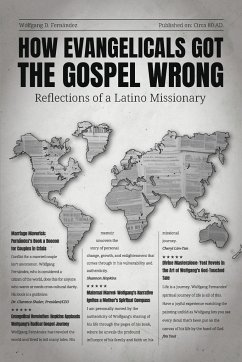
American Evangelicals Today
Versandkostenfrei!
Versandfertig in 1-2 Wochen
48,99 €
inkl. MwSt.
Weitere Ausgaben:

PAYBACK Punkte
24 °P sammeln!
American Evangelicals Today assesses the contemporary social, religious, and political characteristics of evangelical Protestants today, and it does so in light of (1) whether these characteristics are similar to, or different from, the corresponding characteristics of adherents of other major faith traditions in American religious life, and (2) the extent which these particular characteristics among evangelicals may have changed over the past four decades. In addition, it analyzes the extent which evangelicals are divided today, and it does so within the framework of four potential factors that might shape such divisions -- racial/ethnic differences, generational differences, educational differences, and religious differences. American Evangelicals Today is designed to serve as an accessible, but scholarly, overview of American evangelicals, one that is appealing to all scholars, students, and laity alike. Smidt offers a discussion of the nature of evangelical Protestantism, highlights the particular analytical issues at play when one seeks to determine just who are to be classified as evangelicals, and reveals some of the contradictory findings that can emerge through the use of these different analytical frameworks for defining evangelicals. The volume not only analyzes the current characteristics of evangelicals in light of those exhibited by other religious traditions as well as how evangelicals have changed over time, but it looks toward the future, addressing generational differences and other possible factors for change among evangelical Protestants.
American Evangelicals Todayprovides a broad overview of evangelical Protestants in the United States. We may think we understand this often-profiled group, but our pictures are usually drawn from mass media accounts or stereotypes. American Evangelicals Today draws on extensive research and survey data to paint an accurate picture of this influential religious group, including social, religious, and political characteristics, and how evangelicals compare to other religious groups. The book also looks at generational differences and possibilities for future change. The paperback edition features a new Preface that brings the analysis of American evangelicals up to the present day.














